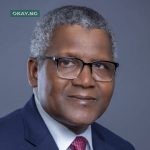The Federal High Court in Abuja has approved a request by the Economic and Financial Crimes Commission (EFCC) to arrest and detain six promoters of Crypto Bridge Exchange (CBEX) over an alleged investment fraud totaling more than $1 billion.
Justice Emeka Nwite issued the ruling on Thursday after considering arguments from the EFCC’s lawyer, Fadila Yusuf.
Those named in the ex parte motion filed on April 23, 2025, are Adefowora Olanipekun, Adefowora Oluwanisola, Emmanuel Uko, Seyi Oloyede, Avwerosuo Otorudo, and Chukwuebuka Ehirim.
The EFCC sought two primary orders from the court: permission to issue arrest warrants and an order to keep the suspects in custody pending investigations.
Yusuf informed the court, “The defendants are at large, and a warrant of arrest is required to bring them in for proper investigation and prosecution.”
She added that the EFCC had received credible intelligence linking the suspects to serious financial crimes.
According to an affidavit presented to the court, the EFCC was alerted in April 2025 about a fraudulent investment scheme involving the suspects. Investigations revealed the fraud was executed through ST Technologies International Limited in collaboration with CBEX.
The suspects allegedly lured investors to deposit their digital assets in cryptocurrency, particularly USDT (a stablecoin), promising returns of up to 100%. Initially, investors could track their investments through the CBEX platform.
However, after over $1 billion was invested, the platform was abruptly shut down, denying investors access to their funds.
Further inquiries indicated that although ST Technologies was registered with Nigeria’s Corporate Affairs Commission (CAC), it lacked authorization from the Securities and Exchange Commission (SEC) to operate an investment business.
The EFCC informed the court that the suspects have since abandoned their known addresses in Lagos and Ogun states.
“A warrant of arrest is necessary to place the suspects on a red watch list and ensure they are apprehended to face justice,” the EFCC’s affidavit stated.
After reviewing the evidence, Justice Nwite concluded:
“I have listened to the submission of learned counsel for the applicant. I have also examined the affidavit evidence and the exhibits attached, along with the written address. I am of the view, and I so hold, that the application is meritorious. Consequently, the application is granted as prayed.”













